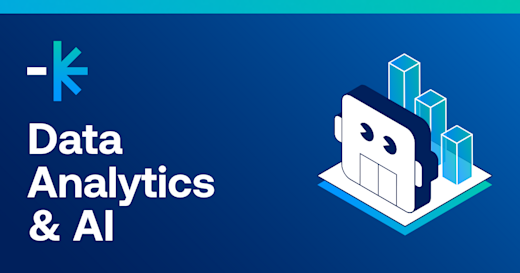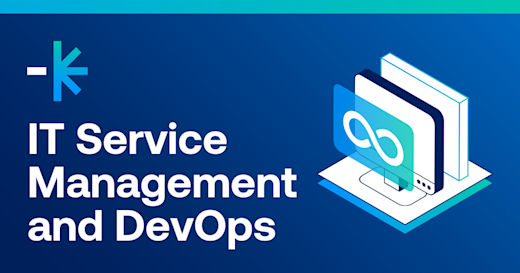Got a question? Call 0800 835 835 | Login
Different cloud products offer different security. What should organisations have on their checklists? We share insights on what to look for in cloud security. You can also get details on cloud security training available with Lumify Work.
Cloud adoption and security
By now, cloud computing is no longer a new-fangled thing. Many businesses have explored or incorporated it. But as we've seen, this has opened up new vulnerabilities.
Gartner predicts $3 billion (US $1.77 billion) in spending from New Zealand organisations, up 22.9% year-on-year. This is based on a 2023 IDC whitepaper sponsored by Microsoft.
But 79% of companies have contended with at least one cloud breach in the last 18 months, underscoring the urgency around new and robust cloud security measures, according to CyberTalk.
What to look for in a cloud security system
"What is cloud security?" is a question people often ask. It is a discipline of cyber security dedicated to securing cloud computing systems. Kaspersky describes it as technologies, policies, activities and security controls that protect sensitive data, programs and environments.
However, defining good cloud computing security, specific to an organisation's context, is more challenging. According to IT Pro, there are four key considerations to guide how to evaluate a cloud service provider's security.
Ability to share and access information - This is critical to business transformation, especially if your objectives are to improve customer experiences and organisational agility. This aspect of security in cloud computing prevents working in silos and supports team collaboration.
Robust encryption - After data is encrypted in transit, it is decrypted in data centres, which creates a vulnerability. Organisations need the complex process of encrypting information at rest in a persistent data store. Look for cloud vendors who can support this, and whose systems embed privacy and security.
Single-sign-on (SSO) technology - This has become the user authentication method of choice, eliminating the need for regular passwords. SSO makes computers and networks more secure by allowing users to access multiple applications using just one set of login credentials by logging them into a central hub.
Compliance with industry and Government standards - When assessing a cloud security solution, determine whether it is merely aligned with third-party standards, whether it is certified by the governing body, and, even better, ask about their regular and proactive initiatives to meet the standards.
Cloud security and training
Some of the most glaring findings reveal how critical cloud security training is. Organisations need to invest in continuous training and education to enhance their workforce’s understanding of cloud security best practices. The Gitnux MarketData Report for 2024 found that:
82% of cloud security breaches are attributed to a lack of employee skills.
Globally, 87% of organisations need more security talent. These statistics underscore the importance of ongoing training and awareness programs to mitigate security risks. See data from Cyber Magazine.
A well-prepared workforce is essential for safeguarding sensitive data and maintaining a secure cloud environment. So, choosing the right cloud security training and certification is strategic to meeting your team's professional and organisational objectives.
Some considerations for cloud security training programs include:
Vendor-specific vs. vendor-neutral: Do you want to specialise in a specific cloud platform, or would you prefer to keep your options open if your organisation needs to migrate to another platform?
Team experience level: Review your team's baseline capabilities and work on attaining certifications you can immediately qualify for. Other training paths require that students begin at the foundation level and then progress to more advanced certifications. You can consult our experts for skills assessments, mapping, training path creation, and more.
Area of focus: Many certifications will tackle general cloud security practices, with advanced courses diving into specialisations. Identify team member interests and strengths in cloud security architecture, engineering, incident response or development.
Authorised training - Ensure that the training content you receive is current and follows international standards. Lumify Work is a trusted training partner of organisations and vendors like ISC2, EC-Council, ISACA, CompTIA, OffSec, Microsoft, AWS and Google Cloud. Our cyber security trainers have real-world experience, are vetted and highly rated, and have received awards like the prestigious EC-Council Circle of Excellence Global Award.
Flexible training options - Explore training options that complement your team's learning preferences and day-to-day work schedules. Lumify has fully equipped training campuses in key business centres around New Zealand. We can also train your team on your premises or deliver state-of-the-art remote instructor-led training. Full HD video and audio create a virtual classroom experience and access to our expert instructors. Delivery modalities provided by Lumify Work include Traditional classroom delivery (Instructor-Led Training or ILT), Virtual Instructor-Led Training (VILT), Hybrid VILT delivery, Online/Self-paced learning, Seminars, Webinars and Blended learning.
Cloud security training with Lumify
Lumify Group offers cloud security training through our different brands to cater for all levels – from end users and frontline staff to senior cyber security professionals.
Cloud security courses available through Lumify Work New Zealand (formerly Auldhouse) include vendor-neutral and platform-specific learning programs to equip teams with the skills to select the right cloud security solutions and maximise those for their organisations.
EC-Council Certified Cloud Security Engineer (CCSE)
The CCSE training program takes a meticulous and hands-on approach to imparting essential cloud security concepts. It seamlessly blends vendor-neutral and vendor-specific elements to offer a well-rounded learning experience. While the vendor-neutral aspects focus on universal best practices and frameworks, the vendor-specific components equip learners with practical skills tailored to specific cloud platforms.
Certified Cloud Security Professional (CCSP®)
ISC2 and the Cloud Security Alliance (CSA) developed the Certified Cloud Security Professional (CCSP) credential to ensure that cloud security professionals have the required knowledge, skills, and abilities in cloud security. Learn about design, implementation, architecture, operations, controls, and compliance with regulatory frameworks through the CCSP course.
CompTIA Security+
The Security+ course validates the core knowledge required of any cyber security role, and emphasises vendor-neutral, hands-on practical skills. Learn to monitor and secure hybrid environments, including cloud, mobile and Internet of Things (IoT).
AWS Security Essentials
Based on the AWS Shared Security Model, this AWS Security course helps you learn where you are responsible for implementing security in the AWS Cloud, what security-oriented services are available to you, and why and how the security services can help meet your organisation's security needs.
Microsoft AZ-500T00 - Microsoft Azure Security Technologies
The four-day AZ-500 training course provides IT Security Professionals with the knowledge and skills to implement security controls, maintain an organisation’s security posture, and identify and remediate security vulnerabilities.
Microsoft SC-900T00 - Microsoft Security, Compliance, and Identity Fundamentals
It is ideal for those looking to familiarise themselves with the fundamentals of security, compliance, and identity (SCI) across cloud-based and related Microsoft services. Candidates should be familiar with Microsoft Azure and Microsoft 365 and understand how Microsoft SCI solutions can span these areas to provide a holistic, end-to-end solution.
Security in Google Cloud
Through lectures, demonstrations, and hands-on labs, explore and deploy the components of a secure Google Cloud solution, using services like Cloud Identity, Identity and Access Management (IAM), Cloud Load Balancing, Cloud IDS, Web Security Scanner, BeyondCorp Enterprise, Cloud DNS and more.
VMware NSX for Intrinsic Security
This hands-on VMware security training course provides you with the knowledge, skills, and tools to achieve competency in configuring, operating, and troubleshooting VMware NSX® for intrinsic security. Learn about common configuration issues and methodologies to resolve them.
Get insights on industry best practices and solutions, like how many are tapping into artificial intelligence to support their cyber security programs. Download our eBook.
You can also contact our team to enquire about cyber security courses. Call us at 0800 835 835 or email [email protected].







